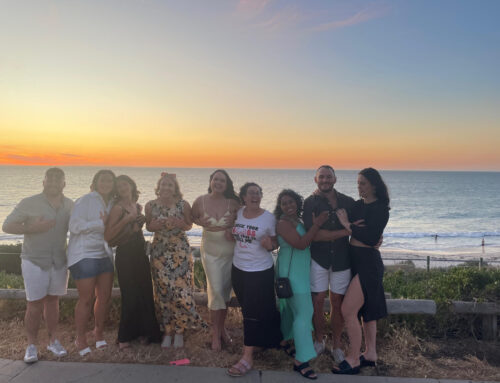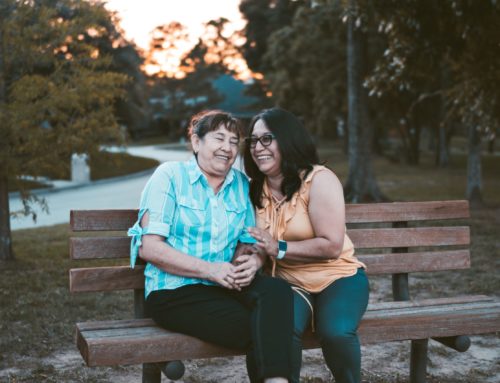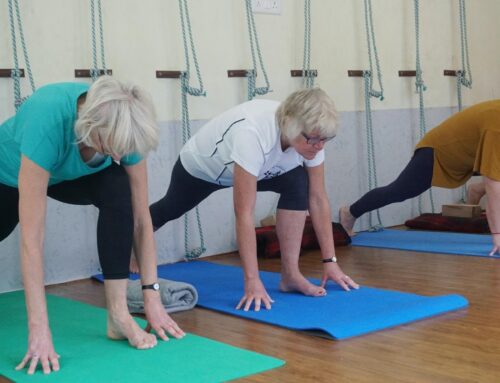We’ve asked a specialised oncology dietitian, Caley Schnaid from Valion Health, how best to provide yourself with good nutrition during intensive treatment, and what she thinks of the ‘diet fads’ that are circulating at the moment…
- What are the main food groups and nutrients that I should particularly focus on during cancer treatment? It is important to try and have a balanced diet with foods from all food groups, if possible, to get a variety of nutrients. During treatment, your body has a higher need for protein and therefore this should be included at all meals. A variety of fruit and vegetables will give you a range of vitamins and minerals in a natural way that can support your body during treatment.
- I know about the food pyramid for healthy people, but does that change for me when I’m on cancer treatment? The food pyramid gives people an idea of the proportions of food from each group to achieve a balanced diet. Whether this changes while on treatment, really depends on the individual. If you are maintaining your weight and keeping fairly well, then continue with a balanced diet. If you are losing weight, you may need to increase the amount of oils to increase energy intake and protein to help maintain/build muscle. Some people are unable to eat certain foods or food groups as they react to them. If any major changes in diet are needed during treatment, it would be wise to consult with a dietitian to ensure you are getting the nutrition your body needs.
- What foods should I restrict during my cancer treatment? There are no foods that need to be avoided during treatment. Only if an individual has an intolerance to certain foods, they may need to restrict. Occasionally you may need to cut out a specific food due to an interaction with drugs, but your doctor or pharmacist would inform you of this.
- Is this a good time for me to lose weight during treatment? No, this is not the time to try to lose weight intentionally! The goal for everyone would be to at least maintain weight during treatment. For those who are underweight, we would aim for weight gain.
- What about sugar? I’ve heard it ‘feeds’ cancer. Is there any evidence behind this? The evidence behind this claim is limited, as the studies on this topic have not been tested on humans. Sugar is a type of carbohydrate. All carbohydrates are broken down into sugars to be used by the body’s cells (all cells, including cancer cells) for fuel. However, in the absence of sugar, all those cells will use protein and fat for fuel which will result in the loss of your protein (muscle) and fat stores. Therefore cutting out sugar will not starve the cancer cells. Carbohydrates are an important part of our diets for not only energy but micronutrients too. Some carbohydrate sources of sugars are more ‘complex’ (such as wholemeal pasta or bread, brown rice, legumes, and starchy vegetables), which means the energy they give your body is sustained for longer, and they often provide fibre as well.
- Do you think those juice diets or ‘nutritional cleanses’ will help to fight my cancer? No, there is no scientific evidence that they will help to fight the cancer. Having juices as part of a balanced diet is fine. Consuming only juices for a period of time as a ‘cleanse’ will result in inadequate nutrition and weight loss. Besides, your liver and kidneys exist to remove any ‘toxins’ anyway.
- Are there particular food groups or nutrients that might exacerbate side effects or worsen my response? All food in moderation is safe. High dose vitamin/mineral supplements, particularly antioxidants, should be avoided during chemotherapy as they can reduce the effectiveness of the chemo. If you are taking any supplements, it is best to clear them with your oncologist before taking them.
- What vitamins, minerals, and/or supplements should I take during cancer treatment? Supplements should only be used if you are deficient in a certain micronutrient. In such a case your doctor will recommend the appropriate supplementation.
- Will my taste change while I’m on cancer treatment? It is possible that your tastes may change whilst on treatment. If there are certain foods that taste better than others then try to have more of those. If the taste changes are reducing your nutritional intake and causing weight loss then see a dietitian.
- What if I don’t have an appetite during treatment, or I can’t keep anything down? If you don’t have an appetite, it is important to continue eating. Small, frequent meals/snacks may be helpful. Try to make the food that you are eating as nutritious and appealing as possible. If you have nausea and/or vomiting, then speak to a doctor about using anti-sickness medication. Once the sickness is settled you should be able to eat more.
- How will I recover my ability to eat and digest after I’ve had a major operation, especially after gastrointestinal surgery? Every surgery is different and therefore so is every individual’s recovery. An experienced dietitian can guide you through this journey of the bowel adapting to its new anatomy. It is usually best to start with lighter foods and drinks in small amounts more frequently during the day. Some people may require nutritional supplement drinks to help them get adequate nutrition while building up their food intake.
- Will I definitely need tube-feeding during my cancer treatment? Not everyone requires tube feeding. This really depends on the type of cancer and treatment that you will be having. Your doctor will inform you if this is a likelihood.
- What if I lose too much weight? We would aim for you to limit weight loss. If you notice that you are losing weight then see a dietitian earlier rather than leaving it too long. The more weight you lose, the less strength and energy you will have.
- My child has cancer. How can I help them to stop losing weight and eat, even when they’re suffering from low appetite and nausea? Choose foods that they enjoy and try to make it interesting for them. For example, if they can’t eat a meal, they may like a nutritional supplement mixed with ice cream to enjoy as a milkshake. Sometimes it’s a matter of presenting just a small amount of a variety of foods on their plate (including vegetables, fruit, protein sources, fat sources, and other carbohydrate sources), giving them choice about what and how much they eat. A dietitian can guide you with some personalised ideas based on your child’s preferences. Anti-sickness medication taken before meals can reduce nausea and allow your child to eat. Speak to your doctor about using anti-sickness medication more regularly if needed.
- Is there an ideal structure for eating and mealtimes? The ideal structure is one that works for the individual! Some people do better with 6 smaller meals and others prefer to have only 3 meals per day. Try to make everything that you eat as nutritious as possible. If you live with others, it might be a good idea to sit down at a meal table regularly to enjoy eating together, as well as creating an opportunity to develop more mindful eating habits. However, don’t worry about it if you don’t feel up to it.
- If I’m concerned about my weight or my nutrition during my cancer treatment, who do I talk to? Ask your oncologist or GP for a referral to a dietitian. Some oncologists may have a specialist dietitian working with them. If you live rurally, dietetic services can be accessed via Telehealth.
Thank you so much, Caley, for your time and expertise today, and thanks to Valion Health for this collaboration.
With thanks to Dr Emily Isham at Rare Cancers Australia (Source)



